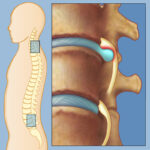Herniated Disc Surgery in India

 Herniated disk surgery has become an increasingly accessible and effective treatment option for patients suffering from debilitating spinal conditions, including disk herniation. In India, advances in medical technology, skilled surgical expertise, and cost-effective healthcare options have made the country a hub for spinal surgeries, attracting both domestic and international patients. This article provides a detailed examination of herniated disk surgery in India, focusing on clinical procedures, cost considerations, outcomes, and the accessibility of these services within the Indian healthcare system.
Herniated disk surgery has become an increasingly accessible and effective treatment option for patients suffering from debilitating spinal conditions, including disk herniation. In India, advances in medical technology, skilled surgical expertise, and cost-effective healthcare options have made the country a hub for spinal surgeries, attracting both domestic and international patients. This article provides a detailed examination of herniated disk surgery in India, focusing on clinical procedures, cost considerations, outcomes, and the accessibility of these services within the Indian healthcare system.
Understanding Herniated Disk and Surgical Needs
A herniated disk, also known as a slipped or ruptured disk, occurs when the nucleus pulposus, the soft, inner core of an intervertebral disk, protrudes through a tear in the outer annulus fibrosus. This condition frequently causes compression of adjacent nerves, leading to symptoms such as severe back or neck pain, radiculopathy (pain radiating along a nerve path), numbness, and weakness in the extremities.
Surgical intervention is considered when conservative treatments—such as physical therapy, medications, or lifestyle changes—fail to alleviate the symptoms or when neurological deficits worsen. The goal of herniated disk surgery is to remove the portion of the disk causing nerve compression, thereby reducing pain and restoring function.
Epidemiology and Need for Surgery in India
The prevalence of lumbar disk herniation in India mirrors global trends, with an increasing incidence due to factors such as sedentary lifestyles, poor posture, and an aging population. According to several regional studies, lumbar disk herniation accounts for a significant portion of hospital visits related to back pain. While many patients find relief through non-surgical interventions, a subset of individuals require surgical treatment due to persistent or severe symptoms.
Types of Herniated Disk Surgery Performed in India
India offers a range of surgical techniques for herniated disk repair, tailored to the patient’s clinical needs, the extent of the disk damage, and the location of the herniation.
Microdiscectomy
 Microdiscectomy is one of the most common surgeries for herniated disks in India. It involves the removal of the herniated portion of the disk through a small incision, often under magnification provided by a surgical microscope. The minimally invasive nature of this surgery results in shorter hospital stays, reduced postoperative pain, and quicker recovery times.
Microdiscectomy is one of the most common surgeries for herniated disks in India. It involves the removal of the herniated portion of the disk through a small incision, often under magnification provided by a surgical microscope. The minimally invasive nature of this surgery results in shorter hospital stays, reduced postoperative pain, and quicker recovery times.
Open Discectomy
For more complex cases, especially those involving multiple levels of herniation or larger disk protrusions, open discectomy may be required. This procedure involves a larger incision to provide direct access to the spine and the affected disk. Although effective, the recovery time is typically longer compared to microdiscectomy.
Laminectomy
 A laminectomy involves the removal of part of the vertebral bone (lamina) to create more space for the compressed nerves, often used when herniation is accompanied by spinal stenosis. This surgery is also performed in combination with a discectomy to relieve pressure on the spinal cord or nerve roots.
A laminectomy involves the removal of part of the vertebral bone (lamina) to create more space for the compressed nerves, often used when herniation is accompanied by spinal stenosis. This surgery is also performed in combination with a discectomy to relieve pressure on the spinal cord or nerve roots.
Spinal Fusion
In cases where there is significant spinal instability or recurring disk herniation, spinal fusion may be indicated. This procedure involves fusing two or more vertebrae together to prevent movement between them, thereby stabilizing the spine. Spinal fusion surgeries are more invasive and require a longer recovery period but are often necessary for maintaining spinal integrity.
Artificial Disk Replacement
Though less common, artificial disk replacement is available in select centers in India. This procedure involves replacing the damaged disk with a prosthetic disk, allowing for the preservation of motion at the affected spinal segment. It is typically reserved for younger patients or those without significant degeneration of the surrounding spine.
Clinical Outcomes and Success Rates of Surgery in India
The success rates of herniated disk surgeries in India are comparable to global standards, with most patients experiencing significant pain relief and improved quality of life. Microdiscectomy, for instance, has reported success rates ranging from 85% to 90%, with low rates of complication. Factors contributing to positive outcomes include early diagnosis, appropriate surgical technique, and adherence to postoperative rehabilitation.
Preoperative and Postoperative Care in Indian Hospitals
Preoperative care in Indian hospitals involves thorough diagnostic evaluations, including MRI or CT scans, physical assessments, and patient education. Patients are briefed about the surgical procedure, potential risks, and expected outcomes, with emphasis placed on informed consent.
Postoperative care is critical for ensuring optimal recovery and long-term success. In India, patients typically receive pain management, wound care, and physical rehabilitation shortly after surgery. The rehabilitation process includes physiotherapy aimed at restoring strength, flexibility, and spinal function. Most hospitals offer comprehensive rehabilitation programs, which may last from several weeks to months, depending on the surgery performed and the patient’s recovery rate.
Risks and Complications of Herniated Disk Surgery
While herniated disk surgery is generally safe, it is not without risks. In India, as in other countries, potential complications include:
- Infection: Postoperative infections, though rare, can occur and are managed with antibiotics.
- Nerve damage: While uncommon, there is a risk of accidental nerve injury during surgery, which may result in permanent weakness or sensory loss.
- Re-herniation: A small percentage of patients may experience re-herniation of the same or adjacent disk, necessitating additional surgery.
- Spinal instability: In cases of extensive disk removal, spinal instability may develop, potentially requiring future fusion procedures.
Indian surgical centers are equipped to handle these complications, and the overall complication rate remains low, particularly in high-volume hospitals with experienced spinal surgeons.
Costs of Herniated Disk Surgery in India
India has gained global recognition for providing high-quality healthcare at affordable costs, and herniated disk surgery is no exception. The cost of surgery in India is significantly lower than in Western countries, making it a viable option for medical tourists seeking cost-effective treatment.
- Microdiscectomy: Costs typically range from ₹150,000 to ₹300,000 (approximately $1,800 to $3,600 USD), depending on the hospital and surgeon.
- Open discectomy and laminectomy: These procedures cost between ₹200,000 and ₹500,000 (approximately $2,400 to $6,000 USD).
- Spinal fusion: Due to the complexity of the surgery and the need for implants, spinal fusion costs can range from ₹400,000 to ₹700,000 (approximately $4,800 to $8,400 USD).
The affordability of these procedures is one of the main reasons India attracts international patients, particularly from regions where spinal surgery is prohibitively expensive.
Accessibility of Herniated Disk Surgery in India
India has a vast network of public and private hospitals offering herniated disk surgery. While the quality of care in private institutions often surpasses that of public hospitals, both sectors have seen advancements in surgical technology and patient care.
Private Hospitals
Private hospitals in metropolitan areas such as Delhi, Mumbai, Bangalore, and Chennai are known for their state-of-the-art facilities, experienced neurosurgeons, and minimally invasive surgical options. These hospitals cater to both domestic and international patients, providing personalized care with shorter waiting times.
Public Hospitals
Public hospitals in India, particularly tertiary care centers, also offer herniated disk surgery at significantly reduced costs. However, these hospitals often face challenges such as long waiting lists, limited resources, and less personalized care. Despite this, public hospitals have highly skilled surgeons and can perform complex spinal surgeries with favorable outcomes.
Medical Tourism
India’s reputation as a destination for medical tourism has led to the development of tailored healthcare packages for international patients. These packages often include preoperative assessments, surgery, postoperative rehabilitation, accommodation, and follow-up care at competitive prices. Medical tourists typically choose private hospitals, which offer high standards of care comparable to Western healthcare systems.
Technological Advances in Herniated Disk Surgery in India
India has embraced numerous technological advancements in spinal surgery, ensuring that patients receive the most up-to-date and effective treatments available. The adoption of minimally invasive techniques, such as endoscopic and robotic-assisted surgery, has significantly reduced recovery times and complications.
Robotic-assisted surgeries, available at select centers, enhance surgical precision and improve outcomes in complex cases. Furthermore, innovations in spinal instrumentation and biomaterials have improved the success rates of spinal fusion procedures, particularly in terms of reducing adjacent segment disease and improving spinal stability.
FAQs
What is the average recovery time after herniated disk surgery in India? Recovery times vary depending on the type of surgery, but most patients can resume light activities within 4-6 weeks, with full recovery taking up to 3-6 months.
Is medical tourism safe for herniated disk surgery in India? Yes, many hospitals in India cater specifically to medical tourists, offering high standards of care, personalized services, and comprehensive postoperative support.
What is the success rate of microdiscectomy in India? The success rate of microdiscectomy in India is generally between 85% and 90%, comparable to international standards.
What are the risks of herniated disk surgery in India? Risks include infection, nerve damage, and re-herniation, though these complications are rare and can be effectively managed by experienced surgical teams.
How much does herniated disk surgery cost in India for international patients? The cost ranges from ₹150,000 to ₹700,000 ($1,800 to $8,400 USD), depending on the type of surgery and hospital chosen.
